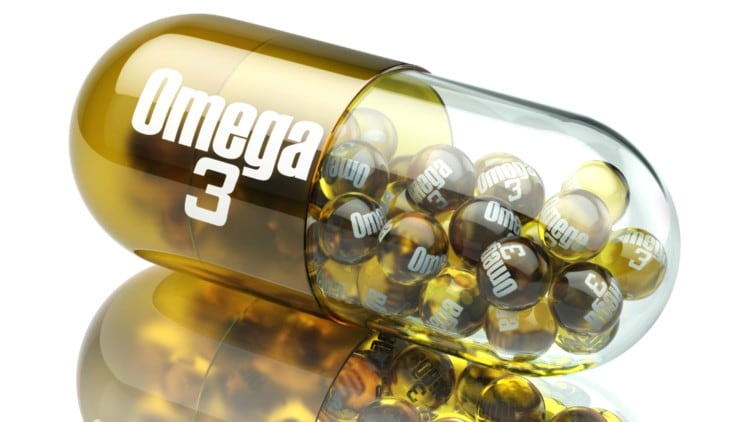These findings, and the results of previous studies, suggest that while 1000 mg of EPA and DHA per day may be effective at reducing liver fat in those with overt non-alcoholic fatty liver disease, it may not be sufficient to recommend for the sole purpose of reducing hepatic and / or visceral fat in men who, while overweight and at increased risk of NAFLD, are otherwise apparently healthy.
Researchers at the University of Sydney, The Heart Research Institute and the University of Newcastle conducted a clinical study to determine the effects of 12 weeks of fish oil supplementation versus placebo on quantified liver fat, liver tests and body composition, including visceral adipose tissue (VAT).
They recruited 50 otherwise healthy overweight men who had a BMI of between 25kg/m2 and 29.9 kg/m2, randomly allocating half of them to receive a daily dose of 1,728mg of marine triglycerides (588mg of EPA, 412mg of DHA and 200mg of coenzyme Q10) each.
The other half were administered a placebo of olive oil capsules daily.
The researchers assessed all outcomes at baseline, then after six and 12 weeks of supplementation. Subsequently, the found no significant difference in results between the fish oil and placebo groups when it came to liver fat and enzymes, anthropometry, or body composition (including VAT).
They wrote: "We found no effect of fish oil supplementation on serum aminotransferase levels. No change was observed in the volume of abdominal visceral or subcutaneous adipose tissue compartments after supplementation."
They noted that these findings were 'opposite' to the results published from previous trials assessing the effects of omega-3 supplementation on liver fat. However, they also stated that many of these trials involved participants who already had NAFLD, and therefore had higher mean liver fat levels than the present study cohort.
Furthermore, several studies had also reported no effect of omega-3 supplementation on liver fat, with the hepatic response to supplementation being "highly variable even in participants with NAFLD".
EPA and DHA dosage was also not a reliable predictor of the effects of omega-3 supplementation on liver fat.
Studies on NAFLD have used a wide variety of daily doses — ranging from 375mg of EPA and 625mg of DHA to 4,630mg of EPA and 2,150mg of DHA — and doses smaller than those used in the current study have been shown to be effective in reducing liver fat in adult NAFLD patients.
Acidic uncertainty
The researchers wrote: "Together with the present study, this raises some uncertainty over the effectiveness of omega-3 PUFAs as a general agent for liver fat prevention or reduction in all individuals, and that unless very high doses of omega-3 PUFAs are used, perhaps individuals with higher liver fat may benefit from supplementation over those with lower liver fat.
"However, it is noteworthy that even in studies reporting a mean benefit, only between 35% and 65% of participants with diagnosed NAFLD experienced a reduction in steatosis with omega-3 PUFA supplementation."
They added that 'outside influences', such as changes in diet, physical activity and / or body weight could significantly affect the hepatic benefit of omega-3 supplementation.
While these effects were not observed in the current study, non-significant changes in body weight and VAT on a group level accounted for most of the variance in liver fat change on an individual level, as opposed to supplementation status.
In addition, it was possible that the study population did not experience an overall benefit from supplementation due to individual participants having had sufficient or high habitual omega-3 consumption before the intervention.
In conclusion, the researchers wrote: "Using gold standard measurement techniques and a randomised placebo-controlled design, this study showed that 12 weeks of omega-3 PUFA supplementation with a commonly employed dosage (just under 2g of fish oil per day) did not alter liver fat, aminotransferases, or visceral adiposity in overweight men.
"This suggests that, while omega-3 PUFA at this dose may be effective at reducing liver fat in those with overt NAFLD, 1,000mg of EPA and DHA per day may not be sufficient to recommend for the sole purpose of reducing hepatic and / or visceral fat in men whom, while overweight and at increased risk of NAFLD, are otherwise apparently healthy.
"Nevertheless, the factors determining the efficacy of omega-3 PUFA supplementation on an individual level need to be clarified."
Source: Nutrients
https://doi.org/10.3390/nu11020475
"Effect of Fish Oil Supplementation on Hepatic and Visceral Fat in Overweight Men: A Randomized Controlled Trial"
Authors: Helen M. Parker, et al.


